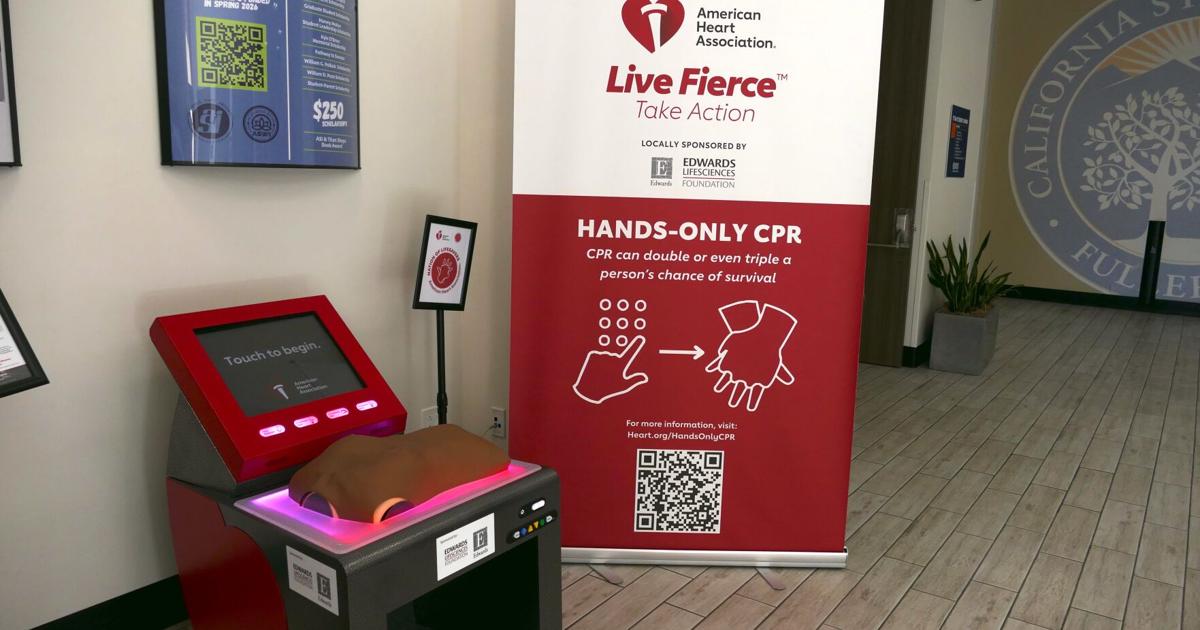A new CPR-training kiosk opened at the Titan Student Union earlier this month, giving students the ability to train and learn about the life-saving technique.
The kiosk is presented by the American Heart Association in partnership with the Edwards Lifesciences Foundation — a medical technology company that researches and produces products for heart health.
The kiosk gives an interactive five-minute training session with a rubber torso, providing instructions, giving participants feedback on rate, depth and proper hand placement.
Savannah Mlot, the executive director of development of community health at the American Heart Association, believes CPR training for bystanders is crucial to saving lives.
“With nine-out-of-10 people going into cardiac arrest outside of the hospital,” Mlot said. “It’s important that people in the community are not just bystanders watching the event happen or calling 911, but they’re acting and performing that CPR, and ensuring that person is going to live.”
According to the American Heart Association, more than 350,000 cardiac arrests happen outside of hospitals and 20% of those happening in public places. In the United States, there are more than 436,000 cardiac arrest-related deaths annually.
“With CPR, it’s all about time. The sooner someone starts compressions on someone who has collapsed or become unconscious, the more likely they are to have a chance of survival,” said Kerri Boyd Crooks, associate director of TitanHEALTH.
The kiosk held its grand unveiling at the TSU on Oct. 1, but will stay on campus until January 2026 for students, passerby and staff to use.
“Bystander CPR, especially if administered immediately, can double or triple a cardiac arrest victim’s chance of survival,” said Mohammad Shafie, American Heart Association Orange County/Inland Empire board president to CSUF News.
Crooks said that CSUF was picked by the American Heart Association because of its population and the guests who visit campus.
Associated Students also offers CPR and first-aid training through the American Red Cross for any students or staff interested.
There are no future locations set for the CPR kiosk, but it will remain in Orange County for the next two to three years.

